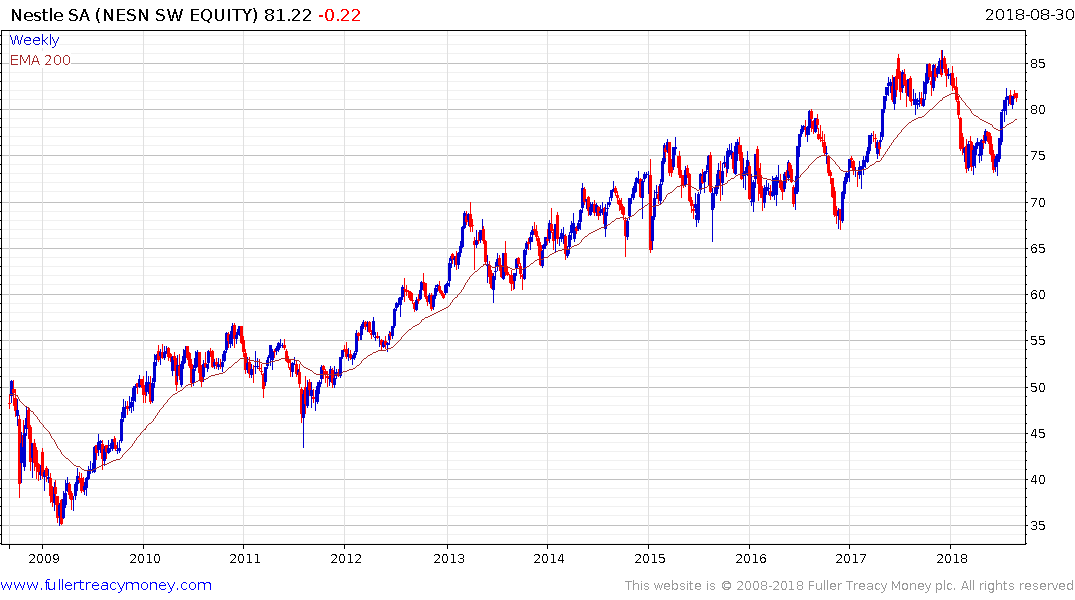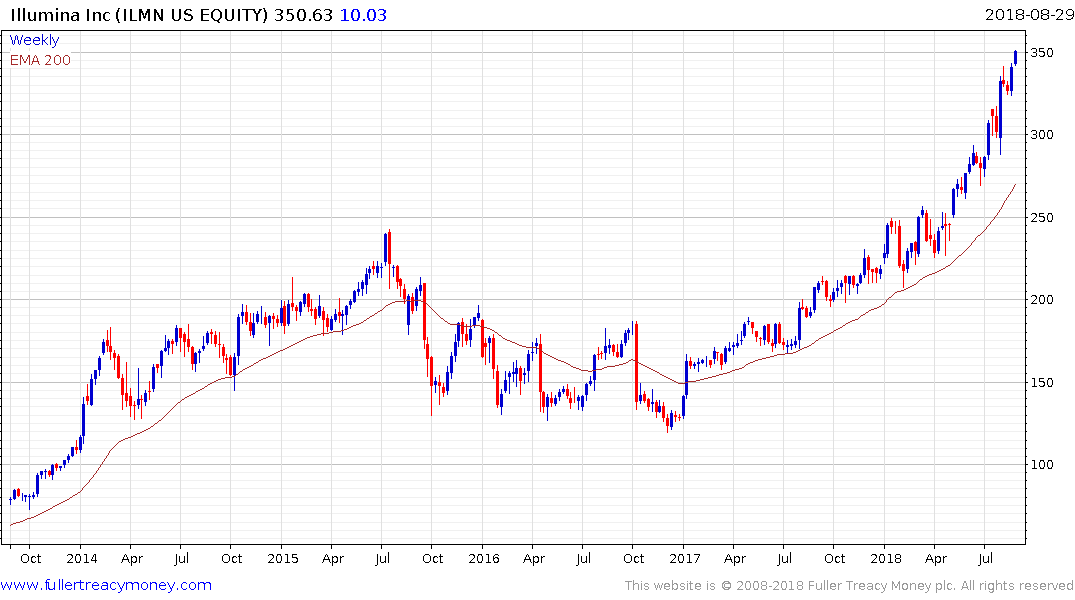Nestle Wants Your DNA and Foodie Pics to Sell You Supplements
This article by Lisa Du, Corinne Gretler and Maiko Takahashi for Bloomberg may be of interest to subscribers. Here is a section:
“Health problems associated with food and nutrition have become a big issue,” said Kozo Takaoka, head of the company’s business in Japan, in an interview in Tokyo. “Nestle must address that on a global basis and make it our mission for the 21st century.” He said the wellness segment could eventually account for half of Nestle’s sales in Japan.
The investments come with the burgeoning interest in so- called nutraceuticals -- food-derived ingredients that are processed and packaged as medicine or wellness aids -- among consumers that are increasingly skeptical about mass products.
Nestle employs more than a hundred scientists in areas including cell biology, gastrointestinal medicine and genomics at the Nestle Institute of Health Sciences and has been developing tools to analyze and measure people’s nutrient levels.
“Decades in the future, all companies will probably have to be doing it,” said Jon Cox, an analyst at Kepler Cheuvreux. “The industry has probably had a setback as consumers also want natural and less processed products while adding supplements is seen as artificial or creating Frankenstein food.”
Some nutritionists are skeptical that tailored diet plans based around supplements are useful and that they may have more of a psychological effect than a medical one.
“Nestle’s program is designed to personalize diets in ways unlikely to be necessary,” said Marion Nestle, a nutrition professor at New York University who isn’t linked to the KitKat maker. “If we think something will make us healthier, we are likely to feel healthier.”
I had my 23andMe results analysed by DNAFit and their conclusion was that I process carbohydrates rather efficiently so I should eat less of them. They also pointed out something I have noticed myself which is that when I commit to a training regime I progress quickly, but when I stop I go backwards faster than most people.
I also tend to accumulate cholesterol, so I have to be very careful with what kinds of fats I consume if I want to maintain healthy levels i.e. more nuts and avocados with fewer shrimps and chicken thighs.
I have been particularly interested in the range of new products offering genetic profiling of our individual microbiomes but my conclusion is these are still very developmental in the range of insights they can offer. With that as a background I expect I am exactly who Nestle will be targeting their products at when they expand beyond Japan.
The share has been trending modestly higher for the last few years and rebounded reasonably well from the May low. There has been a succession of rather acute pullbacks since 2015 but the progression of higher reaction lows has remained intact. As long as that remains the case potential for continued higher to lateral ranging can be given the benefit of the doubt.

Meanwhile the reason Nestle can offer this service is because the cost of genetic sequencing has fallen so much. This is in large part because of the machines Illumina is producing with the aim of getting the cost of sequencing down to less than $100 within the next few years.

The share continues to march higher in a staircase step sequence uptrend and a sustained move below $320 would be required to question the consistency of the advance.


